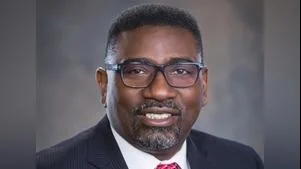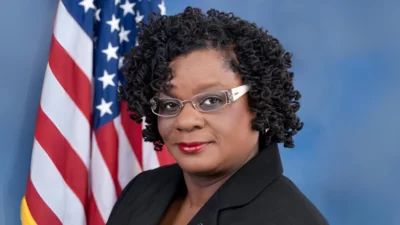LaTonya Johnson, Wisconsin State Senator for 6th District | Facebook
LaTonya Johnson, Wisconsin State Senator for 6th District | Facebook
According to the Wisconsin State Legislature's official website, the bill was described as follows: "special observance days in schools".
The following is our breakdown, based on the actual bill text, and may include interpretation to clarify its provisions.
In essence, this bill adds February 18, the birthday of Vel R. Phillips, to the list of special observance days in Wisconsin schools. The state currently recognizes 22 special observance days, which include events such as Dr. Martin Luther King, Jr. Day, Susan B. Anthony's birthday, Environmental Awareness Day, and Veterans Day. Under existing regulations, when a special observance day occurs on a weekend, schools must observe it on the nearest school day, either preceding or following the weekend. The new observance will be implemented in the school year beginning after the bill's effective date.
The bill was co-authored by Representative Supreme Moore Omokunde (Democrat-17th District), Senator Tim Carpenter (Democrat-3rd District), Senator Kristin Dassler-Alfheim (Democrat-18th District), Senator Jodi Habush Sinykin (Democrat-8th District), and Senator Dianne H. Hesselbein (Democrat-27th District). It was co-sponsored by Representative Clinton M. Anderson (Democrat-45th District), Representative Deb Andraca (Democrat-23rd District), and Representative Margaret Arney (Democrat-18th District), along with 50 other co-sponsors.
LaTonya Johnson has co-authored or authored another 10 bills since the beginning of the 2025 session, with none of them being enacted.
Johnson graduated from Tennessee State University in 1997 with a BS.
Johnson, a Democrat, was elected to the Wisconsin State Senate in 2017 to represent the state's 6th Senate district, replacing previous state senator Nikiya Harris Dodd.
In Wisconsin, the legislative process starts when a senator, constituent, group, or agency proposes an idea for a bill. After drafting, the bill is introduced, numbered, and referred to a committee for review and public input. If approved, it moves through three readings and votes in both the Senate and Assembly. Once both chambers pass the same version, the bill goes to the governor, who can sign it, veto it, or let it become law without a signature. Only a small share of bills introduced each session ultimately become law. You can learn more about the Wisconsin legislative process here.
| Bill Number | Date Introduced | Short Description |
|---|---|---|
| SB135 | 03/14/2025 | Special observance days in schools |
| SB73 | 02/26/2025 | Prosecuting or adjudicating delinquent a person under the age of 18 for committing an act of prostitution |
| SB70 | 02/26/2025 | A minor’s authority to consent to health care |
| SB60 | 02/21/2025 | Expanding the homestead income tax credit. (FE) |






 Alerts Sign-up
Alerts Sign-up